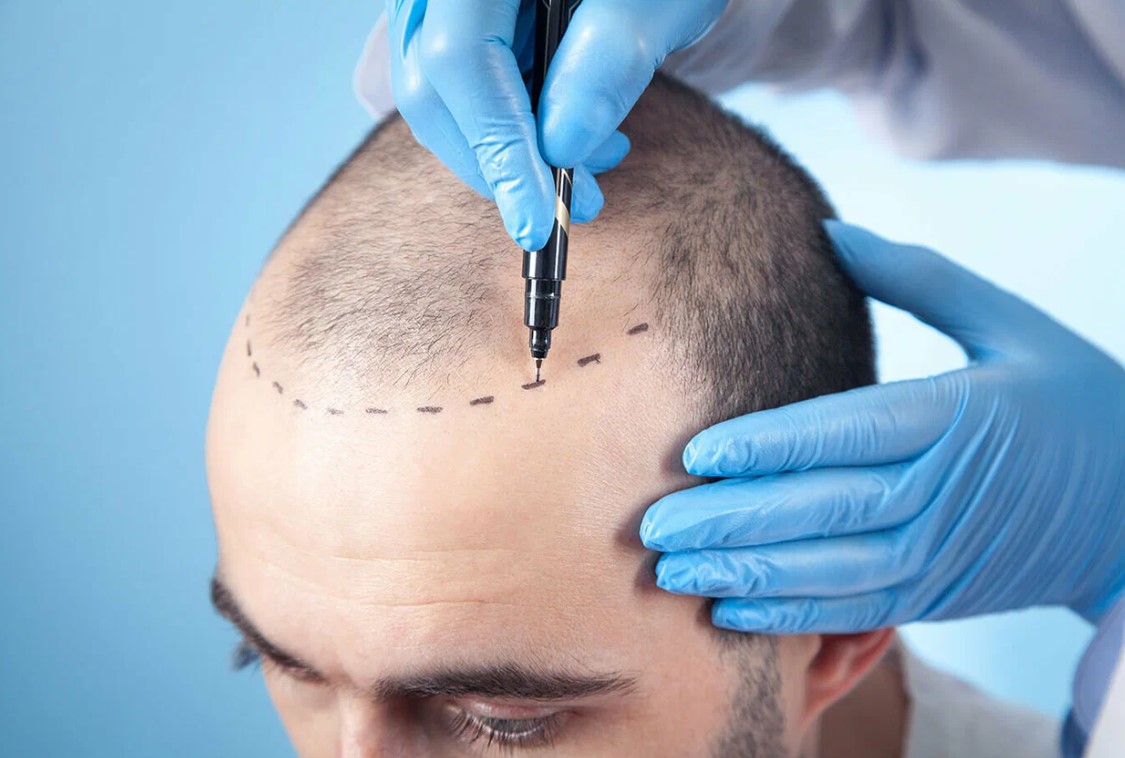Hormones play a crucial role in hair growth, hair loss, and the success of hair transplant procedures. Hair follicles are highly sensitive to hormonal changes, and understanding this relationship is essential for managing expectations, preventing further hair loss, and optimizing transplant outcomes. Many people are now considering hair transplant in Islamabad to restore their hair and boost confidence.
The Role of Androgens
The most well-known hormones influencing hair loss are androgens, particularly dihydrotestosterone (DHT). DHT is a derivative of testosterone and binds to receptors in hair follicles, especially on the scalp. In genetically susceptible individuals, DHT shortens the hair growth phase (anagen) and miniaturizes hair follicles. Over time, this leads to thinning hair and eventual baldness, a condition medically referred to as androgenetic alopecia or male/female pattern baldness.
Men with a genetic predisposition to hair loss are particularly affected by DHT. The follicles in specific scalp regions—typically the temples and crown—are more sensitive, while follicles in the back and sides of the scalp are usually resistant. This difference in sensitivity is important for hair transplantation because donor hair from DHT-resistant areas is more likely to survive and thrive when transplanted.
Hormonal Influence on Hair Transplant Success
Hormones not only contribute to hair loss but also influence transplant results. Hair transplanted from DHT-resistant donor areas tends to retain its resistance when moved to thinning or balding regions. This is why surgeons carefully select donor hair from the occipital (back) or lateral sides of the scalp.
However, if a patient continues to experience high levels of DHT activity after transplantation, native, non-resistant hairs surrounding the transplanted follicles may continue to thin. This can affect the overall appearance, making the newly transplanted hair appear less dense in comparison. In some cases, ongoing medical therapy with DHT inhibitors, such as finasteride, is recommended to preserve existing hair and complement the transplant results.
Female Hair Loss and Hormonal Changes
Hormonal fluctuations also affect female hair loss patterns. Conditions such as polycystic ovary syndrome (PCOS), menopause, pregnancy, and thyroid disorders can alter estrogen and androgen levels, leading to diffuse thinning or hair shedding. While female hair loss patterns differ from male patterns, the principle remains the same: hair follicle sensitivity to hormones dictates susceptibility to thinning.
For women considering hair transplants, understanding hormonal influences is crucial. Surgeons may evaluate hormone levels and underlying conditions before recommending surgery. Correcting hormonal imbalances beforehand can improve transplant outcomes and prevent premature loss of transplanted hair.
The Impact of Stress Hormones
Stress hormones, particularly cortisol, can also influence hair health. Prolonged stress increases cortisol levels, which can trigger telogen effluvium—a condition where a large number of hair follicles enter the resting phase simultaneously. Although this type of hair shedding is typically temporary, chronic stress can exacerbate existing genetic hair loss and interfere with transplant results. A scalp under hormonal stress may heal more slowly after transplantation, affecting graft survival and hair regrowth.
Hormonal Medications and Hair Transplant Considerations
Certain medications affecting hormone levels can influence hair loss and transplant success. For example, anabolic steroids increase testosterone and DHT levels, potentially accelerating hair loss in genetically susceptible individuals. Hormone replacement therapy (HRT) in both men and women may also affect hair follicle activity. Surgeons often ask patients to disclose all hormonal medications to plan an effective treatment strategy and anticipate potential risks.
Additionally, post-transplant hormone therapy may be recommended to stabilize hair loss. Medications like finasteride and minoxidil help protect existing follicles, improve scalp health, and optimize the appearance of transplanted hair. Proper management of hormonal influences before and after transplantation enhances long-term success.
Lifestyle and Hormonal Balance
Lifestyle factors also impact hormone-related hair loss. Diet, exercise, sleep, and stress management play roles in maintaining healthy hormone levels. Nutritional deficiencies can exacerbate hair thinning, while chronic stress may trigger hormonal imbalances that affect follicle health. A holistic approach that considers hormonal health, nutrition, and lifestyle can improve the results of hair restoration procedures.
Monitoring and Managing Hormonal Impact
Patients considering a hair transplant should discuss hormonal factors with their surgeon. This includes:
- Evaluating androgen levels, especially in men experiencing pattern baldness.
- Identifying any thyroid or reproductive hormone imbalances in women.
- Assessing stress levels and cortisol impact.
- Reviewing medications or supplements that influence hormonal activity.
By addressing hormonal factors, surgeons can optimize donor hair selection, plan graft distribution, and recommend supportive therapies to maintain both transplanted and native hair.
Conclusion
Hormones have a profound influence on hair loss and the outcomes of hair transplantation. Androgens like DHT play a key role in male pattern baldness, while hormonal fluctuations in women can lead to diffuse thinning. Stress hormones and certain medications also affect follicle health and hair regrowth. Understanding these hormonal dynamics is essential for predicting hair transplant success, selecting the right donor hair, managing ongoing hair loss, and achieving natural, lasting results. By combining careful surgical technique with hormonal management, patients can maximize graft survival and enjoy healthy, long-lasting hair restoration.






